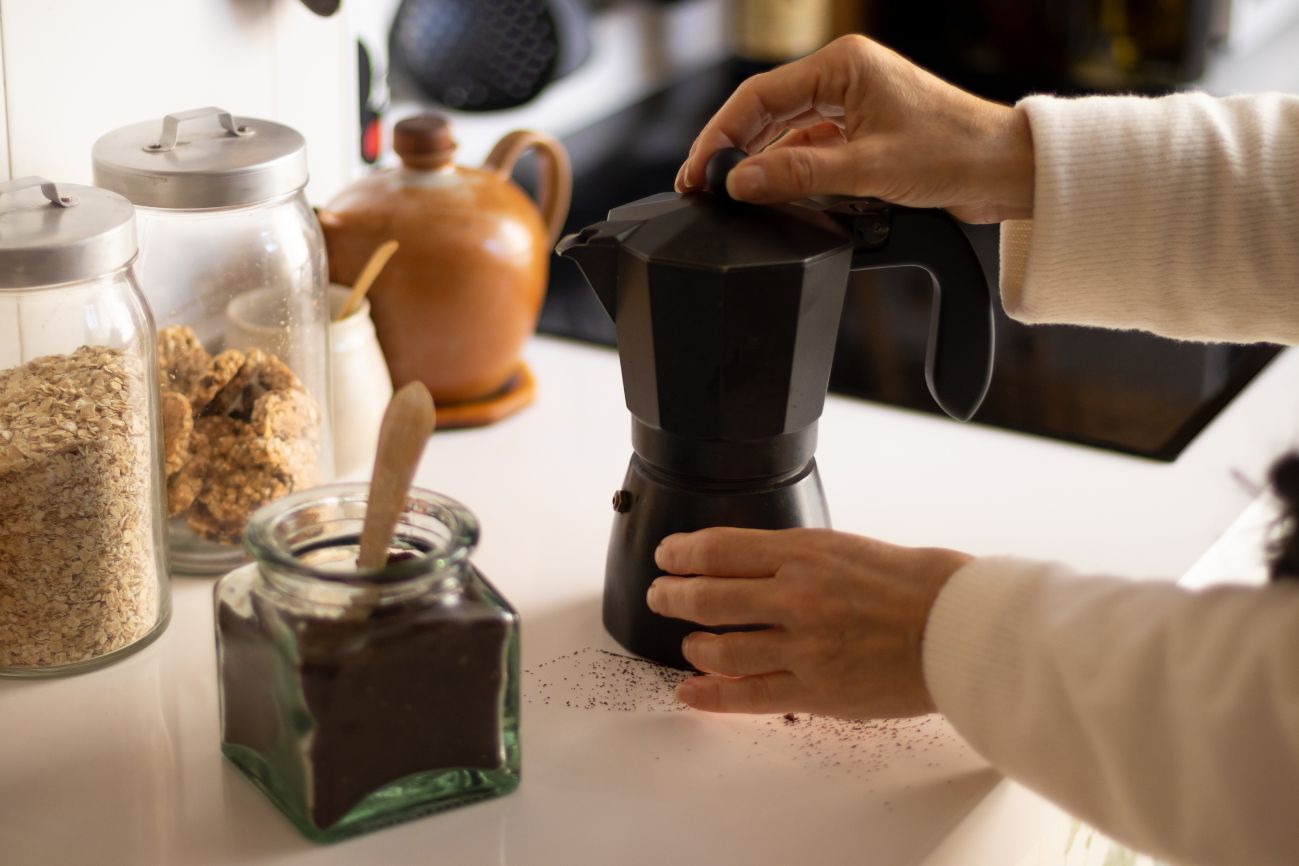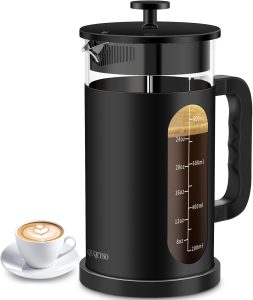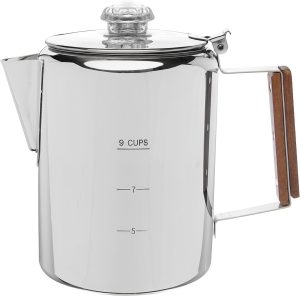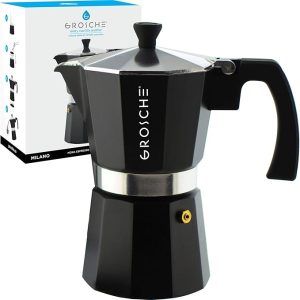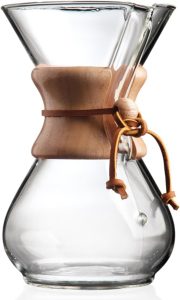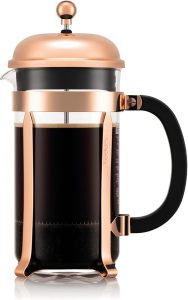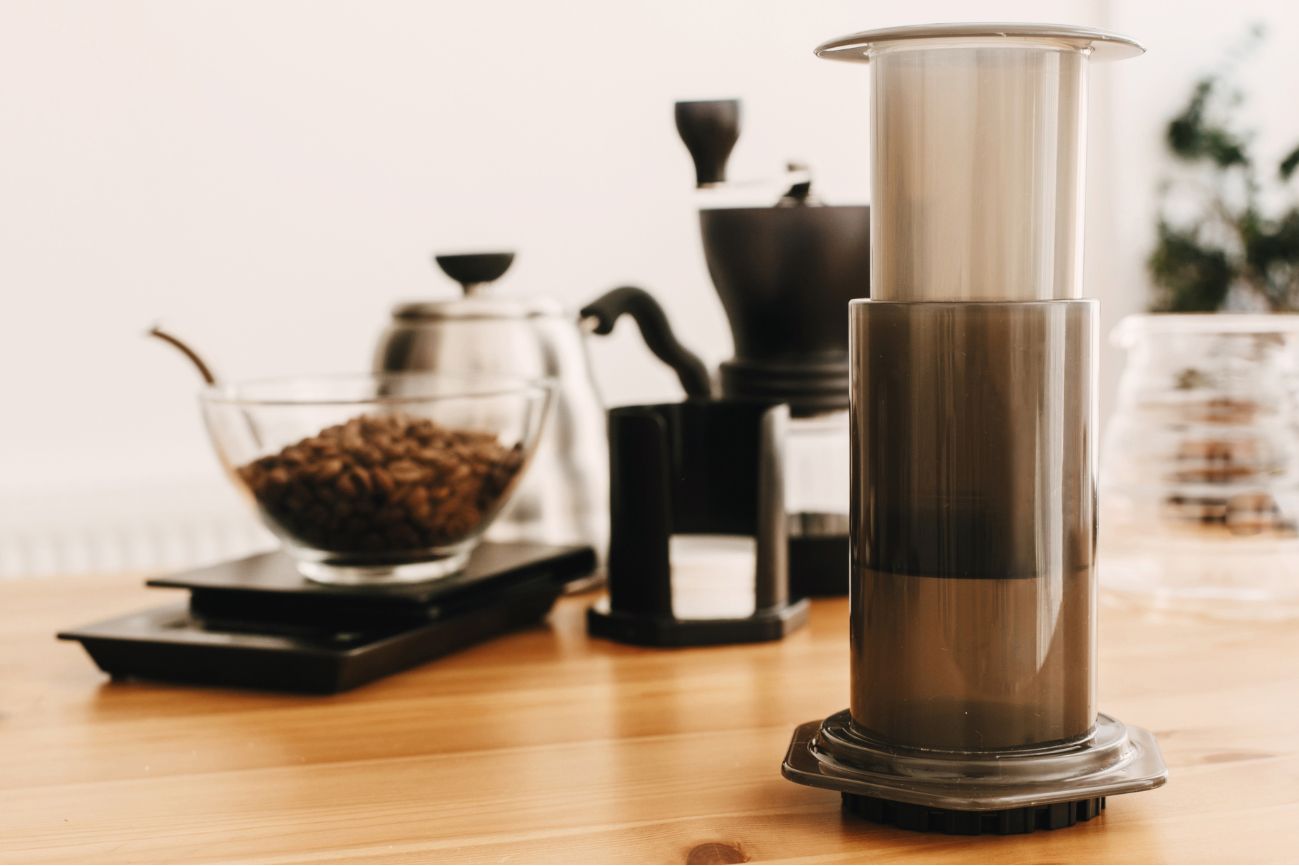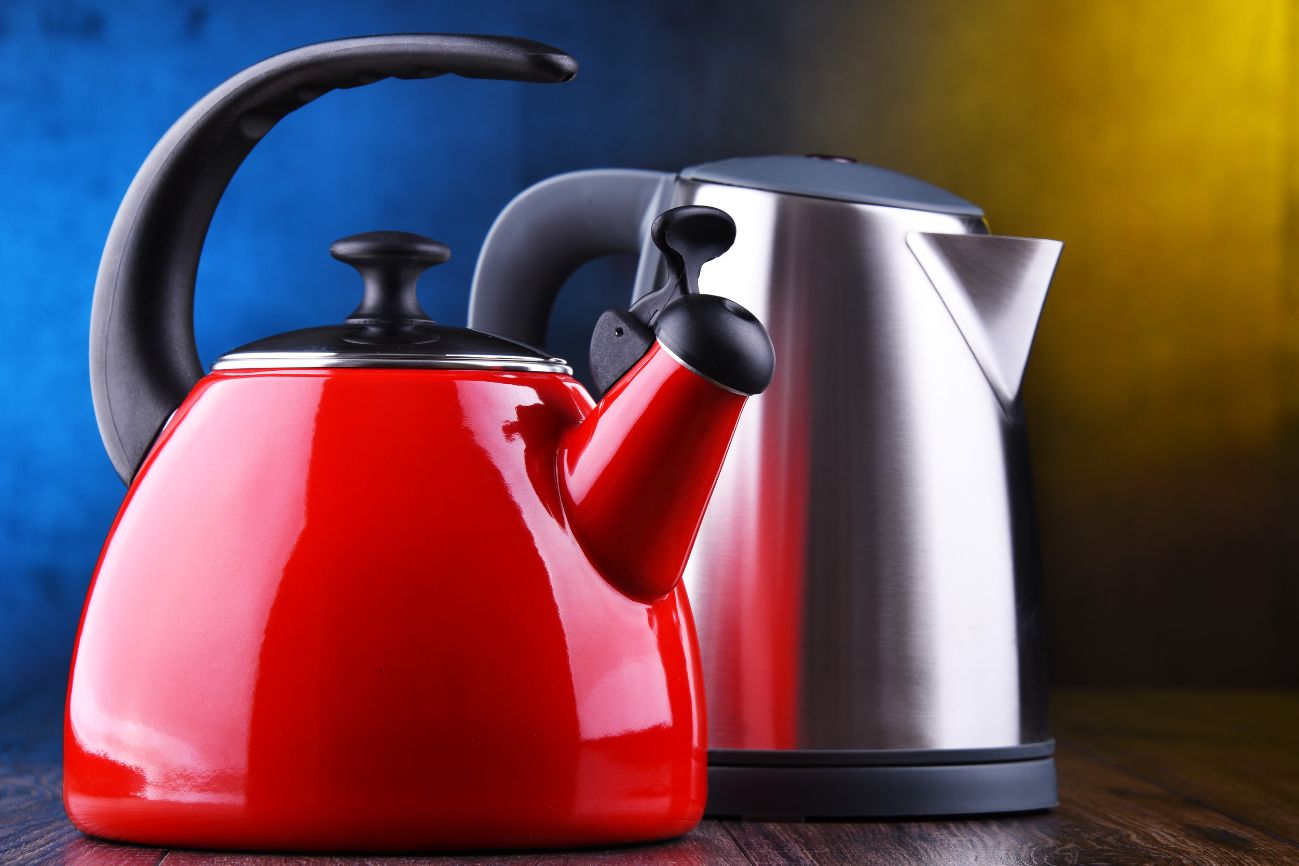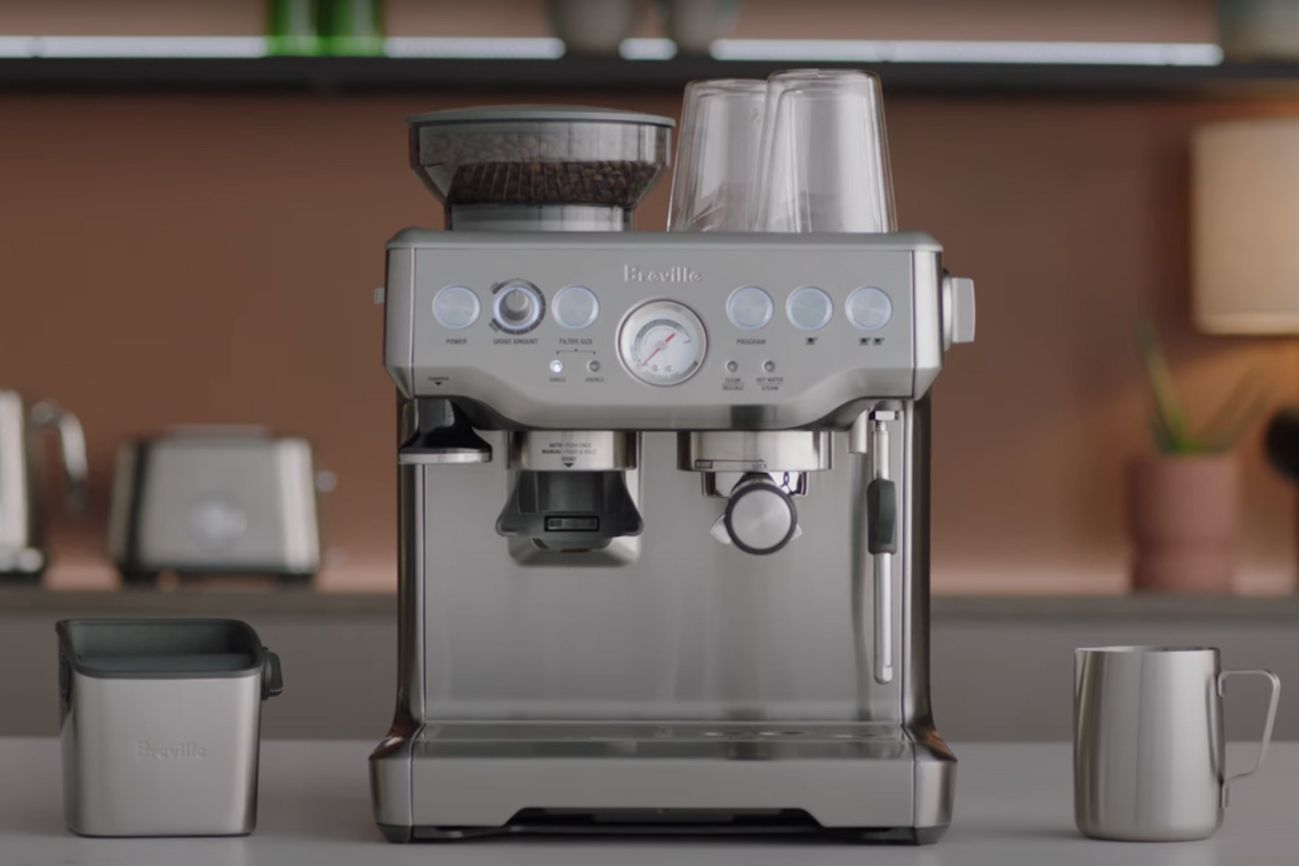Many people have established large businesses just around coffee making. This thing has a significant impact on the environment. In today’s era, people are preparing coffee at home for themselves. Coffee has become a specialty drink for everyone. Coffee is the first preference, whether it’s an event or a gathering. Apart from that, it is used daily in offices, homes, and restaurants.
That’s why everyone is buying their coffee machines so they don’t have to purchase ready-made coffee repeatedly, saving their money in the process. Most coffee makers are made of plastic, so when everyone buys them, it has a significant negative impact on the environment.
Today, we will discuss how coffee-making impacts the environment and how we can turn this into a positive change. In this article, we will explore some eco-friendly and sustainable coffee makers to solve this issue.
We will cover here Eco-friendly coffee equipment, the Best reusable coffee tools, Green coffee brewing accessories, Zero-waste coffee brewing, and Sustainable coffee gears.
You can also check out our guide on the best cheap coffee makers.
How Plastic Impacts the Environment and Health?
Many people think that using plastic coffee makers doesn’t make much of a difference. However, when we pour hot water into these plastic-made coffee makers, harmful chemicals are released from the plastic components and mixed into our coffee. When we consume this coffee containing harmful chemicals, it begins to affect our internal systems. Continuous consumption of such chemically contaminated coffee can eventually lead to damage to our internal organs.
Additionally, plastic is non-biodegradable. When a coffee maker becomes faulty, it cannot be decomposed naturally and must be discarded. When thousands of people dispose of plastic coffee makers as waste, it contributes significantly to environmental pollution, harming both our air and surroundings, and becoming a major cause of environmental degradation.
Why Choose Eco-Friendly Coffee Makers?
Choosing sustainable coffee makers is not merely a trend; it’s an essential step toward protecting our planet. Traditional brewing methods, especially single-use pod machines, produce a staggering amount of plastic waste. Each year, billions of coffee pods find their way into landfills and oceans, contributing to pollution and harming wildlife. Sustainable coffee makers offer a practical solution by minimizing waste and using materials responsibly, allowing coffee lovers to enjoy their favorite beverage guilt-free.
Here are the key benefits of switching to eco-friendly coffee makers:
- Reduced Waste: Sustainable coffee makers often use permanent or biodegradable filters, significantly reducing waste compared to single-use pods or disposable filters.
- Energy Efficiency: Eco-friendly coffee machines are designed to be energy-efficient, lowering your energy consumption and carbon footprint.
- Longevity and Durability: Made from sustainable materials like stainless steel, glass, or recycled components, eco-friendly coffee makers are often more durable and designed to last.
- Health Benefits: Sustainable machines generally avoid plastic components, preventing exposure to chemicals like BPA, which can leach into your coffee.
- Support Ethical Practices: Many sustainable brands support fair trade, ethical sourcing, and environmental initiatives, ensuring your purchase contributes positively to communities and ecosystems.
Top Eco-Friendly and Sustainable Coffee Maker
| Coffee Maker | Type | Material | Capacity |
| QUQIYSO French Press Coffee Maker 304 | French Press | Borosilicate Glass, Upgraded Stainless Steel | 34 ounces |
| COLETTI Bozeman Percolator | Percolator | Stainless Steel | 9 Cups |
| Grosche Milano Stovetop Espresso Maker | Moka Pot | Stainless Steel | 5 Cups |
| Chemex Pour-Over Coffee Maker | Pour-Over | Borosilicate Glass | 3~10 Cups |
| Bodum Chambord French Press | French Press | Borosilicate Glass, Stainless Steel | 34 ounces |
1. QUQIYSO French Press Coffee Maker 304 Stainless Steel
Best Overall Eco-Friendly Choice
The QUQIYSO French Press Coffee Maker features durable 304 stainless steel combined with heat-resistant borosilicate glass, providing a rust-free and plastic-free brewing experience. Its transparent glass design allows you to easily monitor your coffee as it brews, while the four-layer filtration system ensures a smooth, grounds-free coffee every time.
Size: 34 ounces
Material: 304 Stainless Steel, Heat-resistant Borosilicate Glass
Price Range: $25–$35
Why You’ll Love It:
- Fully recyclable, plastic-free stainless steel
- Durable and built to last
- No electricity required, reducing energy consumption
PROS
- Four-layer filtration for smooth, flavorful coffee
- Easy to clean and maintain
- Transparent design for monitoring the brewing process
CONS
- Because it can only brew 21 ounces of coffee at once, this is not the best choice if you’re looking for a way to make large batches of coffee for gatherings.
- It is slightly heavier than glass French presses.
2. COLETTI Bozeman Percolator Coffee Pot
Best Traditional Eco-Friendly Option
The Bozeman Percolator Coffee Pot by COLETTI is an environmentally friendly and sustainable coffee maker. This stainless steel coffee maker is the best plastic-free coffee maker available. Although you don’t need electricity to make a freshly brewed cup of coffee with this coffee maker, you can carry it with you anywhere. It is the greatest eco-friendly option for travel and road trips. If you enjoy percolator coffee, this will provide you with the strongest flavor possible. Its wooden handle and stainless steel build make it both visually appealing and durable.
Size: 9-cup capacity
Material: Stainless steel, wooden handle
Price: $35 – $45
Why You’ll Love It:
- Completely plastic-free and recyclable materials
- No disposable filters needed
- Classic percolator taste and brewing experience
Pros
- Suitable for outdoor and indoor use
- Rich, bold coffee flavor
Cons
- It requires practice to master the brewing process, so for beginners, this can be a little bit tricky to brew a cup of coffee.
- Some people may find percolated coffee too strong or bitter.
3. Grosche Milano Stovetop Espresso Maker
Best Eco-Friendly Espresso Maker
The Grosche Milano Stovetop Espresso Maker provides a plastic-free espresso brewing experience, requiring no electricity and creating zero disposable waste, making it an eco-conscious choice.
Size: 5 Cups
Material: Stainless steel
Price: $49 – $60
Why You’ll Love It
- Durable and fully recyclable stainless steel
- Electricity-free brewing reduces energy use
- Authentic, flavorful espresso
Pros
- Ideal for home and travel use
Cons
- Requires stovetop heating
- Smaller capacity limits brewing for large groups
4. Chemex Pour-Over Coffee Maker
Best Elegant and Sustainable Choice
The Chemex pour-over coffee maker, crafted from borosilicate glass with a wooden collar, emphasizes beauty, functionality, and sustainability. It uses biodegradable paper or reusable cloth filters, making it an elegant, waste-reducing choice.
Size: 3~10 cups
Material: Borosilicate Glass, Wood
Price: $40–$55
Why You’ll Love It
- Beautiful minimalist design
- Fully recyclable components
- Exceptional flavor clarity
Cons
- Glass material can break if mishandled
- Requires careful pouring technique
5. Bodum Chambord French Press
Best Durable French Press Option
The Bodum Chambord French Press combines sustainability with classic design. It is built with stainless steel and borosilicate glass and features a reusable metal mesh filter, eliminating disposable filter waste entirely.
Size: 6-cup (34 ounces)
Material: Borosilicate Glass, stainless steel
Price: $40–$55
Why You’ll Love It
- Durable construction
- No disposable filters needed
- Excellent coffee flavor and richness
- Easy to use and clean
Cons
- The glass carafe requires careful handling
- Brewing may leave fine sediment in the coffee
Other Sustainable Coffee Makers
Here are some other top sustainable coffee makers that we have already covered in our recent posts. You can read our earlier posts for detailed reviews of these coffee makers and choose the one with your own choice.
- Hario V60 Ceramic Coffee Dripper
- AeroPress
- OXO Brew Compact Cold Brew Coffee Maker
- Bialetti Moka Express
Best Reusable Coffee Equipment
You should always use reusable coffee tools in addition to eco-friendly coffee equipment. Reusable coffee tools are eco-friendly and also save money and cut out waste.
- Reusable Stainless Steel Filters: Avoid disposable paper filters.
- Reusable Coffee Cups: Cut down on single-use cups and lids.
- Coffee Grinder: Freshly grind beans at home to minimize packaging waste.
- Compost Bin: Compost coffee grounds for garden enrichment.
Green Coffee Brewing Accessories
While enjoying your morning cup, green coffee-making accessories help you reduce waste and your environmental impact. Recyclable coffee filters, bamboo stirring spoons, stainless steel coffee scoops, natural fiber cleaning brushes, and reusable metal or cloth coffee filters are a few common eco-friendly accessories. Because of their long lifespan and durable construction, these accessories are made from sustainable materials. You could promote a more sustainable brewing process and enhance your eco-friendly coffee maker by implementing these items into your daily routine.
How Sustainable Coffee Makers Benefit the Planet
Switching to sustainable coffee makers can significantly impact environmental health. Single-use coffee pods take hundreds of years to decompose, often leaking toxins into soil and waterways. By contrast, sustainable brewing methods dramatically reduce landfill waste and energy consumption, directly benefiting the planet.
Reducing Plastic Waste
Eco-friendly coffee makers avoid single-use plastic, substantially cutting down plastic waste. Biodegradable filters and reusable components reduce your environmental impact dramatically.
Energy Conservation
Sustainable coffee makers typically have designs optimized for lower energy consumption. Manual brewers like the French press and stovetop espresso makers don’t require electricity, eliminating carbon emissions from energy use entirely.
Sustainable and Ethical Practices
Many eco-friendly coffee brands support sustainable agriculture, fair wages for farmers, and environmentally responsible sourcing, creating positive social and ecological impacts.
Making the Switch: Tips for Sustainable Brewing
Here are simple steps to enhance your coffee sustainability:
- Opt for reusable filters: Permanent metal or cloth filters prevent wasteful single-use filters.
- Buy coffee in bulk: Reduce packaging waste by purchasing larger quantities of coffee beans.
- Choose ethically sourced beans: Select brands that emphasize sustainable farming practices and fair trade.
- Compost grounds: Coffee grounds enrich compost, nourishing gardens and reducing landfill waste.
Zero-Waste Coffee Brewing: Step-by-Step Guide
To brew coffee with zero waste, you must use all the coffee-making components reusable. This includes recycling coffee grounds, selecting coffee makers that don’t use single-use pods, and utilizing reusable filters. Making coffee with zero waste is simple; all you need to do is use reusable components. So let’s talk about making coffee with no waste.
- Always make sure to choose a sustainable coffee maker.
- Use reusable stainless steel filters.
- Grind coffee by yourself; never use pre-ground coffee.
- Always use reusable cups or mugs.
- Instead of throwing the used coffee grounds, use them as a natural fertilizer for plants.
Conclusion
Coffee making has become a huge business. Almost everyone drinks coffee every day, but they use plastic coffee makers, which negatively affect our health and the environment. Therefore, you should switch to eco-friendly coffee makers. By using all the reusable coffee tools and equipment, you can reduce waste, save money, and have a positive impact on the environment. You can choose from any eco-friendly coffee makers that are available on the market, including the low-budget models we mentioned above.
Your small change can make a huge difference! So, don’t hesitate to make this change to save the environment.
Check out “How to Use an AeroPress for Travel: The Ultimate Brewing Guide for Travelers and Campers.”

